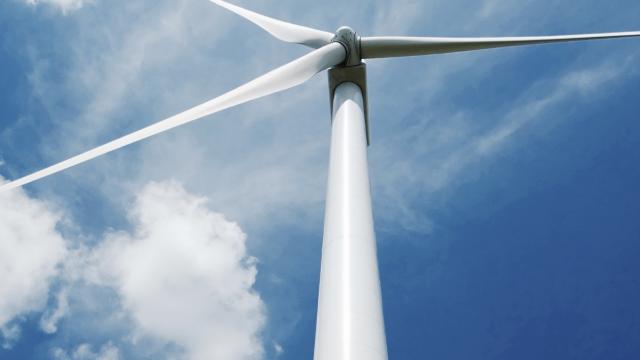It’s great that our prime minister found time in his diary for COP27. It is, after all, a pivotal moment, upon which our destiny on planet earth depends. And one at which the UK, as the outgoing president of the COP, can make a big impact through delivery on the commitments it has made, including at last year’s COP26 conference.
This includes Rishi Sunak’s commitment – as Chancellor – to make the UK the world’s first ever net zero aligned financial centre. That was a truly ground breaking commitment, and one which – if implemented as promised – will be transformative, redirecting the whole private and financial sector towards the net zero goal.
But the private sector can’t do all the work by themselves. The government also needs to take responsibility for delivering on our national commitment to net zero by 2050 through its own policy decisions. And that appears to be in some jeopardy.
Cutting green spending will undermine stability
The UK economy has steadied since the September mini-budget, and we now await the much vaunted fiscal event on the 17th November, at which the government will set out its new approach to managing the economic challenges we face.
Kwasi Kwarteng’s mini-budget was all about growth but, under the leadership of Rishi Sunak and now Chancellor Jeremy Hunt, we have seen the emphasis shift much more towards stability as the primary objective, rather than growth. Indeed, it now seems that we must sacrifice growth to high interest rates, rising taxes and, in particular, big spending cuts, aimed at maintaining the stability of the public finances (and the money markets).
But the problem with an excessive focus on balancing the books is that government spending to catalyse the investment and jobs needed for a green economy may also be sacrificed, and this will undermine our future stability and prosperity.
Energy security is one example. We now know that earlier government investment in renewables and energy efficiency measures would have left us much less vulnerable to the rising energy bills and cost of living crisis we now face. These problems are being driven by global energy prices which local energy production does not isolate us from.
Climate change is another. We know the government is not on track to deliver fast enough against its own commitments, as the Climate Change Committee repeatedly highlights, and a recent court case has confirmed. And yet now the threat of swingeing spending cuts further jeopardises the delivery of many of those commitments. For example, will we see proposed energy efficiency measures sacrificed yet again on the altar of cost cutting? This is despite the enormous contribution it could make to achieving our climate goals, the immediate relief it could provide to families struggling with rising energy prices and the boost it would give to a new army of energy efficiency firms up and down the country.
The Environmental Land Management Scheme could also fall victim to spending cuts, despite its potential to benefit farmers and rural communities wanting to steward their land in a way that cuts emissions and restores nature.
In addition, without smart policies which correct market failures and reward investment in environmentally beneficial outcomes, it will be very difficult for the private sector to deliver on its own net zero commitments.
We need to prioritise fast growing green industries
We can simultaneously promote economic growth and stability, and make progress on our climate and nature commitments. To do so, the Treasury needs to prioritise government spending in a way that catalyses private investment in those fast-growing industries of the future. This will stand us in good stead to compete in a low carbon global economy and build our resilience to climate change. It would also mean ending support for fossil fuel industries, which will soon be obsolete, and redeploying their capital and skill sets in future growth industries.
These are the kinds of criteria we think the Treasury should use when deciding spending priorities, perhaps embodied in a new Fiscal Resilience Rule aimed at overcoming the narrow view of ‘stability’. This would focus just as much on whether government spending is promoting the resilience of the UK economy, as on balancing the books.
There are numerous examples of the kinds of investment projects that would deliver this. As set out in the recent Aviva and WWF joint publication, a UK Net Zero Investment Plan for green growth, catalysing this private investment in a green transition could unlock new business opportunities worth £40 billion of gross value add – over one per cent of GDP – to the UK economy per year. The UK’s low carbon economy could grow by 11 per cent a year and the global export market for low carbon products could be worth up to £1.8 trillion by 2030.
That is why we are calling on the government to introduce a Net Zero Investment Plan, setting out how it will support investment in future growth industries and mobilise the private investment required.
When it comes to setting new fiscal rules, the government should be able to borrow to invest, if that investment promotes sustainable growth and resilience; that is something the markets will understand and value in the face of growing international economic volatility and climate threats.
So, while the fiscal event on the 17th November is likely to reverse a lot of the measures of the previous mini-budget, it shouldn’t throw the baby out with the bathwater. The government should retain a focus on investment and growth, and not cut spending on those things the country needs most for ongoing prosperity and resilience.

